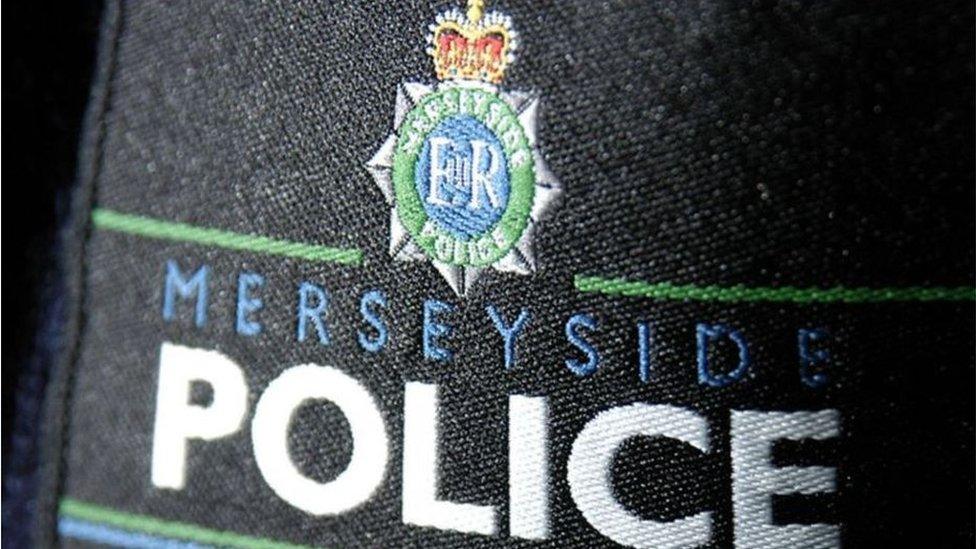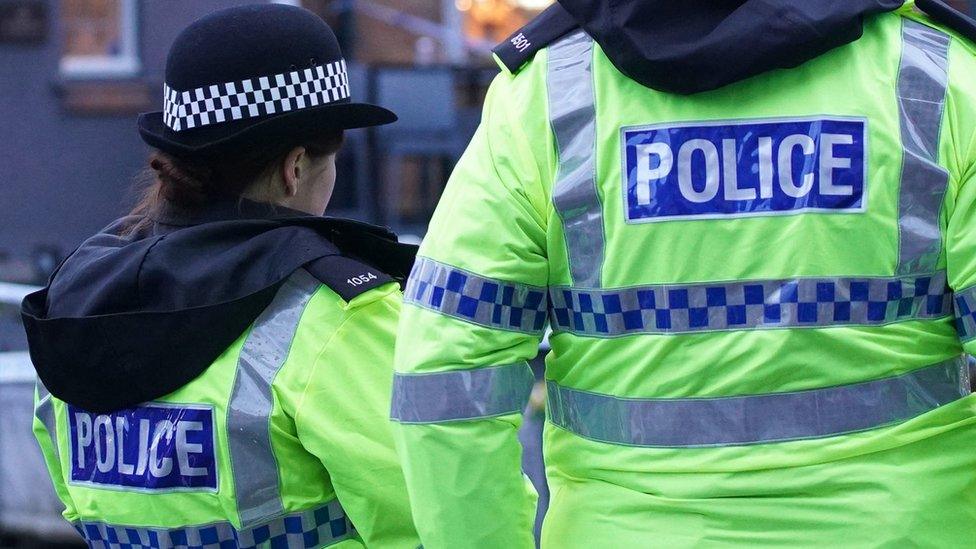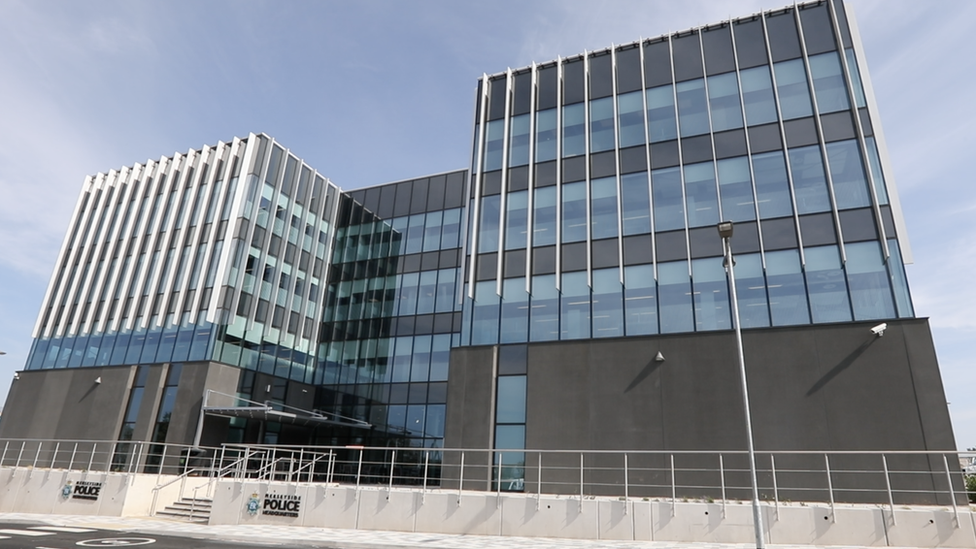Merseyside Police must improve safeguarding of vulnerable people
- Published

Merseyside Police was graded across eight areas of policing
Merseyside Police must improve how it safeguards vulnerable people, a watchdog has said.
A new report, external has highlighted the issue alongside a range of concerns including the time it takes to respond to calls.
While the force was effective at preventing crime, it must improve how it shares information with partner agencies to protect vulnerable people from harm, inspectors said.
Bosses said work was already under way to improve in these areas.
Her Majesty's Inspectorate of Constabulary graded the force's performance across eight areas of policing and found it was good in preventing crime and showed a good understanding of how to use police powers fairly and respectfully.
It was also rated good in its treatment of the public and in developing a positive work space.
However, the force was rated only "adequate" in investigating crime, responding to the public, and in its leadership and management - the bare minimum requirement.
It was found to require improvement in protecting vulnerable people and managing offenders.
Inspector of Constabulary Michelle Skeer said the watchdog recognised the force had faced "significant operational challenges" including the fatal shootings of Sam Rimmer, Olivia Pratt-Korbel, Ashley Dale, Jackie Rutter and Elle Edwards.
She also acknowledged efforts to tackle the terrorist attack at Liverpool Women's Hospital and policing the Eurovision Song Contest earlier this year.
But Ms Skeer said the force needed to ensure it had enough trained staff and resources across several areas including its domestic violence disclosure scheme and specialist investigation functions.
She also highlighted how the force did not always respond to calls as quickly as it should.
"The force has made some improvements to its attendance to calls for service, but it still isn't routinely attending incidents quickly enough," she said.
"If the force doesn't attend incidents in time, it can cause victims to lose confidence.
"In more serious cases, this can cause victims to be potentially put directly at risk."
She added officers and staff said the force supported them well but she wanted to see the force do more to make sure it was "fully representative of the communities it serves".

Chief Constable Serena Kennedy said the force continuously reviewed and developed how it worked
"In Merseyside, 8.3% of the population is from an ethnic minority background, yet just 3.7% of its officers identified as being from an ethnic minority background," she said.
"This is beginning to improve in the recruitment of police officers - as of 31 March 2022, 7% of all new joiners to the force are from an ethnic minority background. This is encouraging."
Chief Constable Serena Kennedy said she was pleased the report "acknowledges the pressures and the unique challenges that the force faced".
"I can reassure the public that the force takes this report seriously and work has already been done, or is underway, in relation to the areas identified so we can continuously improve," she said.
"Merseyside Police is a force dedicated to continual learning and development.
"We are not naïve to think that everything is perfect, but I can guarantee that where there are areas that need to improve, we will do the work that is required to get it right."

Why not follow BBC North West on Facebook, external, Twitter, external and Instagram, external? You can also send story ideas to northwest.newsonline@bbc.co.uk
Related topics
- Published18 August 2022

- Published12 September 2023

- Published17 January 2023

- Published25 October 2021
